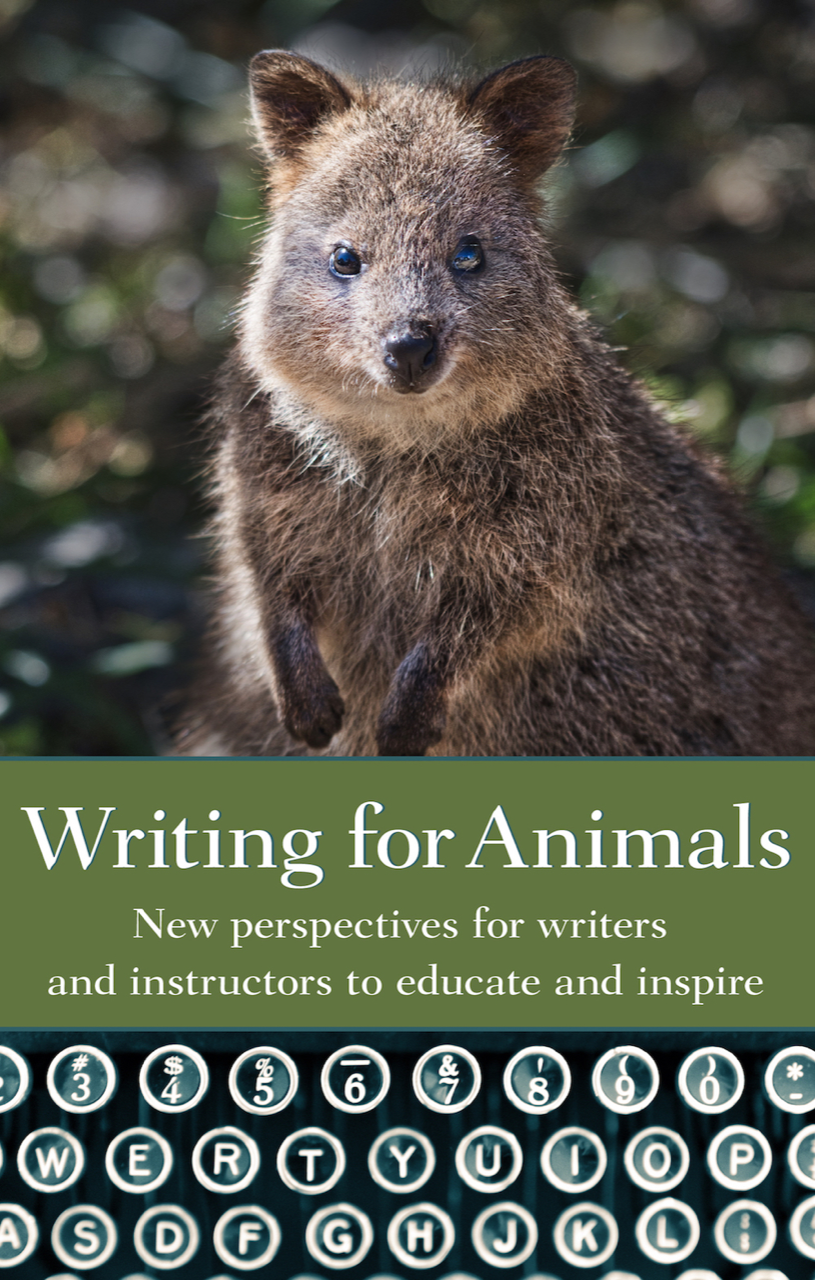As founders of a small press devoted to animal and environmental literature, we often find ourselves wishing for books that don’t yet exist. And for some time we have wanted to see a book that would provide guidance for anyone writing about animals.
 So we set out to curate a collection of essays that would form the book that we published in August of this year, Writing for Animals: New perspectives for writers and instructors to educate and inspire.
So we set out to curate a collection of essays that would form the book that we published in August of this year, Writing for Animals: New perspectives for writers and instructors to educate and inspire.
This was not our first anthology—we’ve also published two short story anthologies. But this was our first nonfiction anthology, which brought unique challenges.
Here is what we learned along the way—and we hope these lessons will come in handy to others.
1. Communicate Your Vision and Share Your Passion
We had a clear idea of what the book would be about, and we were clear as we could be in the call for submissions (via Submittable). Our call for submissions not only specified the types of essays we were interested in but also explained why we were creating this collection.
We began by including a reference to works that inspire us, such as Franz Kafka’s “Report to the Academy” and Karen Joy Fowler’s “We Are Completely Beside Ourselves.”
We were open for submissions from educators and authors, and hoped to include a mix of instructional and inspirational essays.
We noted the (admittedly small) stipend that we would pay authors and also emphasized that works could be previously published. This collection was, and is, a labor of love, and we hoped to find essays that came from a similar passion about animal issues.
2. A Stipend Goes a Long Way
We committed early on to paying authors a $100 stipend for their essays. While this amount is largely symbolic, we felt that it was important to pay authors for their time and talents. Also, given the unique nature of the book, we hoped the amount would inspire writers who might be considering writing an essay to push forward. And some did just that.
3. Be Patient and Persistent
We aimed to have the essays we needed in three months. In the end, it took twice that long. Had we stuck to a firm deadline, the anthology would not have become a reality. When you’re a small press, you have to assume that announcing a call for submissions is just step one. You also have to promote the call widely. Expect to send out notices to all the major publishing trade magazines and websites, as well as literary journals. There is so much noise online that you have to expect the news of your anthology to take at least a few months to reach everyone you want to reach.
4. Previously Published Does Not Mean “Expired”
Too many journals and publishers want to be the first to publish a story or essay. But we felt that this was too strict a limitation—we wanted the best essays, period, and did not wish to limit ourselves to first-time publication. And because many journals have limited distribution, we knew that even previously published works would be new to most readers.
5. Think Globally
While we restricted the anthology to English-only essays, we did not restrict ourselves to US-only submissions. We’ve had a global focus for all of our anthologies and, as a result, have published writers from the UK, Japan, New Zealand, and Australia.
6. Be Flexible
Expect the vision for your collection to evolve as submissions come in. We didn’t anticipate having an entire section dedicated to anthropomorphism, but given the outstanding essays on this topic, we ended up creating one.
7. Upon Publication, Ask Your Contributors to Help with Promotion
Your contributors will become your fellow marketers. Early on, we sent a list of questions to each contributor that formed Q&As that we began posting on our blog when the book published. We also asked each contributor to provide a list of contacts and promotional opportunities, and then we began following up with offers of review copies. Which leads me to…
8. Budget for Review Copies/Exam Copies
Expect to send out 50 or more review copies (we’ve currently sent out nearly 100). You’ve put so much time and effort into your book, and you want to be sure to get copies into the hands of anyone who can help spread the word. For international reviewers, you should have a PDF review copy ready as well.
9. Don’t Give up the Day Job
We’re idealists, but we’re also pragmatists. We hope to sell millions of copies of every book we publish, but we also know that most books sell fewer than a thousand copies. So we keep our overhead low (i.e., we work from a home office) and rely on other sources of income to keep the lights on.
10. Don’t Stop Looking for New Promotional Opportunities
Yes, we send review copies out to all the usual suspects, but we also keep our eyes open for any opportunity to share the book. (Like this one!) And we have to remind ourselves every so often that even though the book may become “old news” to us and our contributors, it’s still brand new for many others. So, unlike larger publishers, we don’t give up on our books after a few months. We’re in this for the long haul.
About Us:
Founded in 2011 and based in Ashland, Oregon, Ashland Creek Press is an independent publisher of environmental and animal literature and eco-fiction, which includes books in all genres about animals, the environment, and the planet we all call home. We are passionate about books that foster an appreciation for worlds outside our own, for nature and the animal kingdom, and for the ways in which we all connect.

